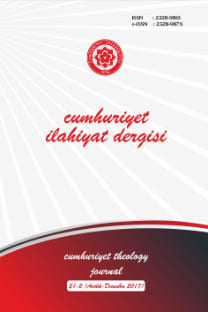Hattat İsmail Zühdü Efendi
Osmanlı devrinde hat sanatının, daha geniş ifadesiyle Osmanlı medeniyetinin teşekkülüne altın kalemi ile katkıda bulunmuş hattatlarımızdan birisi İsmail Zühdü Efendi (?-1806)’dir. Güçlü kalemi, derin sanat kabiliyeti, gü- nümüze ulaşan fevkalade başarılı eserleri ile hat tarihinin gerçek dâhilerindendir. Sağlam eli, mümtaz kalemi ve bunların ittifakı ile ortaya koyduğu muhteşem yazılarının yanında onu sanat tarihinde ebedîleştiren, ölümsüz kılan bir başka yönü ise kardeşi Mustafa Râkım (1757-1826) gibi bir sanat âbidesini yetiştirmesidir. Kendi özel ve güzel meziyetlerine Rakım gibi eş- siz bir sanatkârı zam etmesi bile Zühdü Efendi için başlı başına bir şereftir. İsmail Zühdü Efendi, az çok bu sanata hizmet etmiş, bu sahada eserleri bize intikal etmiş olan dört adaşının ikincisidir. Birisi kendinden önce, ikisi ise kendinden sonradır. Şurası muhakkak ki Ünyeli Kaptan-zade İsmail Zühdü Efendi sırf bu dört kişinin en büyüğü değil, o gerek Osmanlı hat tarihinin ve gerekse dünya sanat tarihinin en mahir ellerindendir
The Calligrapher Ismail Zuhdi
İsmail Zühdü Efendi (?-1806) is one of the calligraphers who contributed to calligraphy in the Ottoman period, or if considered within a wider context, can be said to have contributed to the formation of Ottoman civilisation with his gifted pen. He can be considered to be one of the true geniuses of the history of calligraphy through his calligraphic skill, artistic talent and his extraordinary works that have survived to today. In addition to the magnificent works of Zühdü which were born from the fusion of his solid penmanship and excellent handwriting, the fact that he trained his brother Mustafa Râkım (1757-1826) a monumental art figure, further eternalises his personage in art history. It is an honour within itself for Zühdü to have cultivated such a unique artist such as Râkım to his own outstanding standards. Zühdü rendered service to calligraphy and was the second of four namesakes whose works have survived to today. One of his namesakes preceded him, whilst two came after him. With absolute certainty, Zühdü can not only be considered to be the greatest of his four namesakes but can be considered to be in possession of some o
